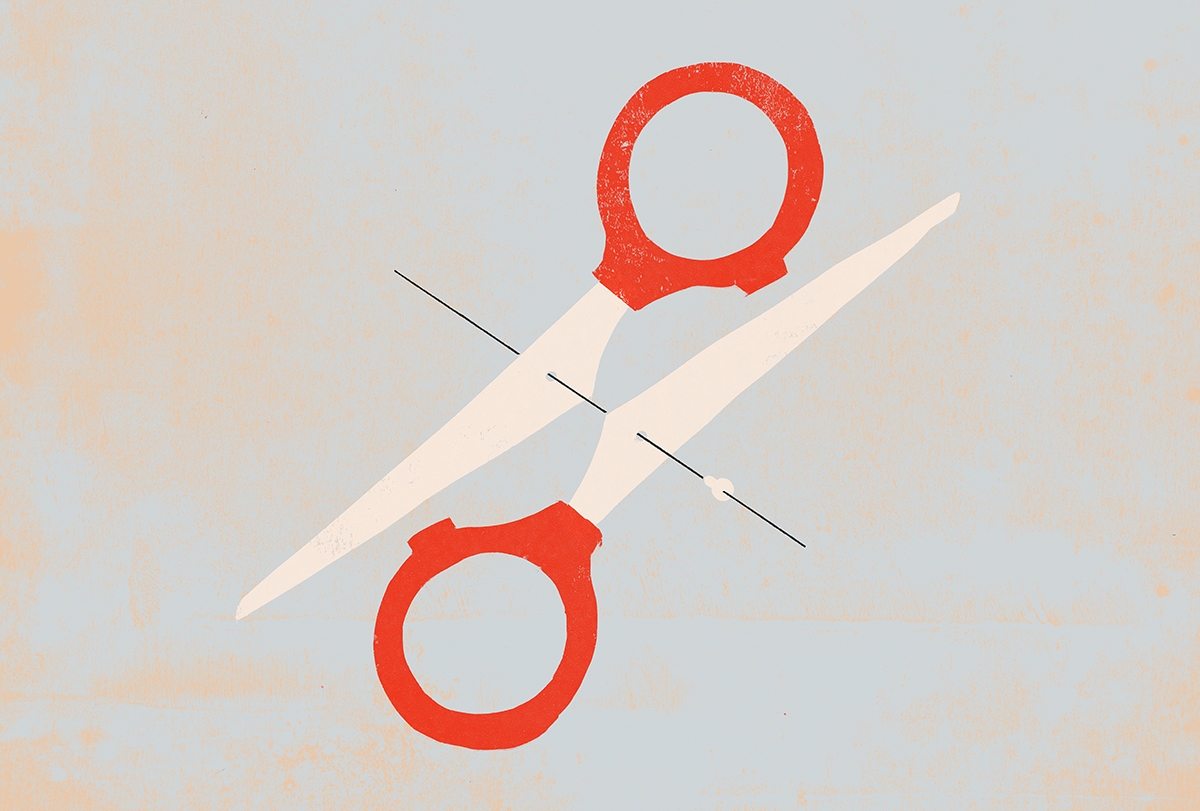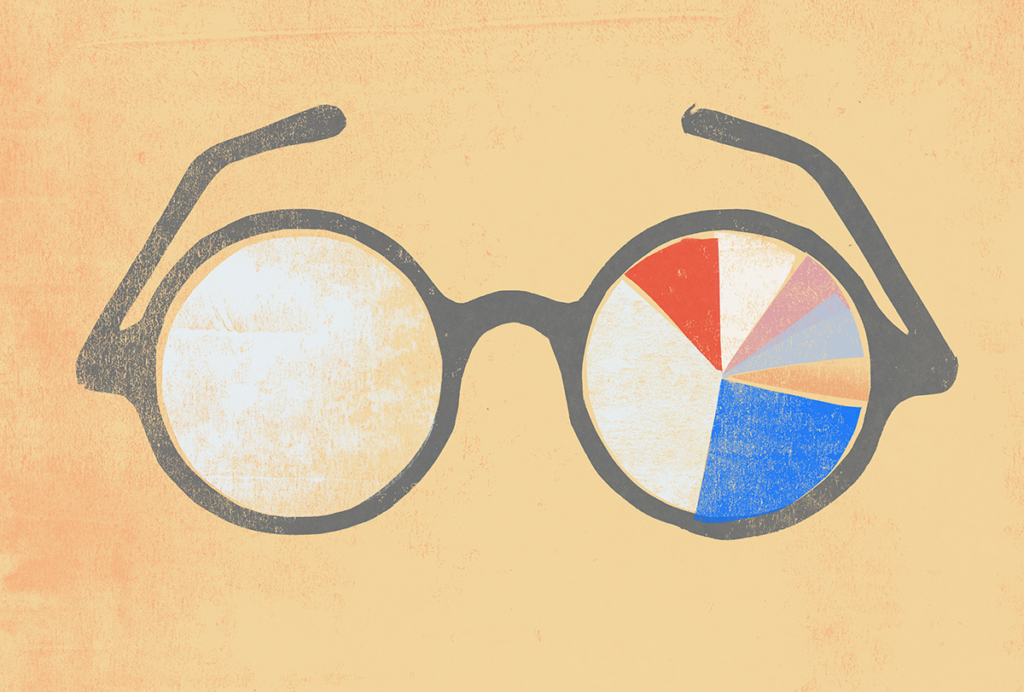Funding is the lifeblood of scientific research. So we wondered what neuroscientists think may happen as a result of this year’s funding cuts in the United States and elsewhere. We surveyed our contributors and readers and interviewed other neuroscientists around the world. Here is what some of them said.

How do you anticipate the field changing in the wake of recent funding cuts?
Most survey respondents said they are bracing for a major reduction in the scientific workforce in the United States; some foresee research and staff shifting from academia to the private sector; and a few predict growth in translational studies and research on artificial intelligence.
“I’m worried. I’m at a large public university, with lots of undergrads. There are concerns about changes in the funding situation in universities like ours. Especially if international students can’t get visas for undergraduate and master’s programs in the U.S., it will completely wreck training and pedagogy. In-state students, if they can’t get financial aid to attend even if they get in, that will impact our ability to educate them. These are longer-term [concerns] but very real.”
—Bing Wen Brunton, professor of biology, University of Washington
“[The field will] dwindle in the U.S., grow elsewhere.”
—Albert Cardona, professor of physiology, development and neuroscience, MRC Laboratory of Molecular Biology, University of Cambridge
“We’ve not yet seen ripples from the funding uncertainty hit our lab yet. Everyone in the U.S. is monitoring the situation carefully and wondering if—and how—these cuts will affect them. Perhaps these uncertainties will be the final push for colleagues who were already flirting with ideas of moving or leaving academia. However, I haven’t noticed a major exodus in my sub-field yet.”
—Martijn Cloos, associate professor of bioengineering, University of Queensland
“In some ways, this period is testing the resilience of the scientific community. Those who can adapt by being resourceful, collaborative and creative will continue to advance science, even in challenging times. While some areas may temporarily suffer from reduced funding, this shift may also spark innovation and refocus priorities in meaningful ways.”
—Luana Colloca, professor of pain and translational symptom science and director of the Placebo Beyond Opinions Center, University of Maryland School of Nursing
“People are leaving and getting let go. Every institution is letting folks go. Grants are being terminated. Or they are just not hiring, because expected funding just didn’t come in. They are accepting fewer grad students and research personnel. The timing could be an intermediate, and maybe in a few years we’ll be fine. Maybe it will be restored to some level. Or it could be a complete decimation of science in this country. It’s hard to predict.”
—Elva Diaz, professor of pharmacology, University of California, Davis
“My worry is that fewer U.S.-born students will apply for graduate school, and that this will be compounded by fewer international applicants. This could be a major hit to the U.S. science labor force.”
—Thomas Fischer, associate professor of psychology, Wayne State University
“Well, there’s also a whole other set of issues around foreign students in the United States, which is another looming catastrophe, because I think if the current administration has its way, we might see a massive reduction in foreign students, and those are sometimes the best students. And it would just really damage our whole ecosystem in addition to, you know, putting aside even just the issues of money.”
—Samuel Gershman, professor of psychology, Harvard University
“Science looks like it’s going to hell. It’s what’s going to happen in the next few years. It’s unpredictable, but things look very bad. Since the ’70s, our universities and their scientific endeavor have grown on government investment in research. And if that’s gone, then a lot of people, I mean young scientists who have just begun their careers and have already invested 10 years of education, they’re going to have the rug pulled out from under them.”
—Rhanor Gillette, professor emeritus of molecular and integrative physiology, University of Illinois Urbana-Champaign
“As a director of graduate studies, I oversee recruitment of new and incoming graduate students, and the question that has consistently come up in the last recruitment cycle from almost everybody, and that I had not heard before in any previous year is, ‘Is neuroscience still a good career to go into?’ Should I do this? I like the idea of becoming a neuroscientist, but would it be smarter to look elsewhere and do something else?’ And so, I think that risk is, of course, enormous. Universities and labs can, to some extent, compensate for a shortfall in money. But losing talent, of course, in the next generation of scientists, that’s a damage that, if it occurs, cannot be easily reversed.”
—Jorg Grandl, associate professor of neurobiology, Duke University
“It will reduce the number joining and likely reduce the number that attain career success and tenure.”
—Charles Hoeffer, associate professor of integrative physiology, Institute for Behavioral Genetics, University of Colorado Boulder
“I think the scale of my research will be dramatically reduced.”
—Nicholas Priebe, professor of neuroscience, University of Texas at Austin
“America has always led in science. Suddenly we have an artificially imposed setback, a reduction of forces. The consequences are that this crop of applicants to my lab is just exceptional. I’m absolutely sure that these applicants would have applied and easily gotten what they wanted in the U.S. Europe is capitalizing on it.”
—Drew Robson, research group leader, systems neuroscience and neuroengineering, Max Planck Institute for Biological Cybernetics
“We’re just losing some of our best scientists to other countries. Everybody who has a dual passport is trying to get out. So, it’s gonna be a very serious brain drain to Canada and Europe and other places in the next few years; that’s gonna be a major issue. My international students can’t focus on their work because they’re worried if they’re going to be deported or not, and they’re spending huge amounts of time doing paperwork to try to see if they can stay in the country or not.”
—Gregory W. Schwartz, professor of ophthalmology, neuroscience and neurobiology, Feinberg School of Medicine, Northwestern University
“In the short term, a huge challenge is whether science institutions are going to be crippled by changes in science funding. In particular, how young people will be going into basic science as a career. Science is an exciting thing to do, but if all institutions are contracting dramatically in the next few years, it will drive away the talent. Also, the lack of international students … A change in our ability to attract the brightest young people from the whole world, which is being deliberately destroyed by the current administration, is going to cripple U.S. science. We’ve benefited enormously by having the best in the world come here to be a scientist. It’s now less attractive. That is a huge threat.”
—Michael Stryker, professor of physiology, University of California, San Francisco
“My biggest worry is our next generation of rising scientists, how they are going to be really impacted by this current funding climate. If there is no funding, there are no jobs, what’s their future? Are we losing all those talented scientists to other countries?”
—Lin Tian, scientific director, Max Planck Florida Institute for Neuroscience
“I do not think you can underestimate the real, incredible sadness of this moment and what a damaging effect it is going to have on science. There is no question that the number of academic science jobs is going to contract over the next 10 years because of what has happened this year. And whether those jobs are present in industry is not clear either. So, you are going to train people in science, and they are going to go do other things, and I think that is the way that is going to be for a while.”
—Anne West, professor of neurobiology, Duke University School of Medicine
“The path isn’t clear at the moment. There are promising funding proposals for AI. But neurobiology tells us more about AI’s potential than many realize. Hopefully, both can be supported with that understanding.”
—Michael Bruchas, professor of anesthesiology and pharmacology, University of Washington
“The NIH has already said from a policy standpoint that they would like to do less animal research and more human research, whatever that means. I can certainly see shifts in priorities that will hold the field back, especially if also there is this emphasis on translational work where the focus has to be on diseases. And of course, most of us that work in the field would love to have an impact on disease, but we also think that we just don’t know where those discoveries are going to come from. And my personal bias for sure is that we need to understand how the brain works to be able to fix it.”
—Jason Shepherd, professor of neurobiology, University of Utah
“About 10 years ago, half of my students/post-docs would go into academia, half to industry. Now it’s three-quarters to industry; there appears to be an exodus from academia. If budgets are cut and you can’t support science faculty, this will trickle down and push these faculty to industry and the trainees will follow. That will hurt academic science, as industry is not really geared to make fundamental discoveries. That’s academia’s area, research where there is no agenda other than discovery and creation of knowledge.”
—Benjamin Deneen, professor and Dr. Russell J. and Marian K. Blattner Chair, Baylor College of Medicine
“Significantly less research funding, and I have considered moving to the private sector.”
—Brad Ferguson, assistant research professor of neurology, University of Missouri
“The field will contract, with many labs disappearing due to lack of funding. Big drain of junior scientists leaving the field (and science). Survivors will be the labs with significant private funding (that is, Howard Hughes Medical Institute investigators).”
—Ueli Rutishauser, professor of neurosurgery and Board of Governors Chair in Neurosciences, Cedars-Sinai Medical Center
“It’s hard to overstate how perilous this is. It’s not just the workforce. It’s basic science as a concept. If the federal government is no longer giving out money for basic or any research whatsoever, the clear idea is that we’re all supposed to work for private companies—Google, X or Neuralink or whatever. A ton of tax money is already going there to subsidize their enterprise. The problem with that, beyond the substantial overhead generated by capitalist extraction, is that within a for-profit environment you cannot even do proper basic research; basic research has a truth motive and not a profit motive. And so, if those two things are at odds, the profit motive is going to win out in an industry context. In basic science, however, the truth has to win. And so, the goal of basic science is to discover truths. And that’s only possible in a nonprofit environment. And so that’s really the beginning and the end of it.”
—Jan Wessel, Clement T. and Sylvia H. Hanson Family Chair and professor of psychological and brain sciences, University of Iowa
Recommended reading

Neuroscience, BRAIN Initiative gain budget in ‘bad’ NIH funding bill

Establishing a baseline: Trends in NIH neuroscience funding from 2008 to 2024

How have funding cuts affected early-career scientists’ futures?
Explore more from The Transmitter

NIH awarded 37 percent fewer neuroscience-related grants in 2025 than in past years

NIH cuts quash $323 million for neuroscience research and training
